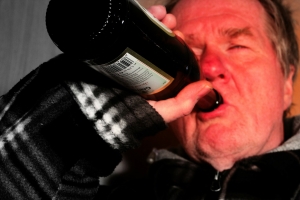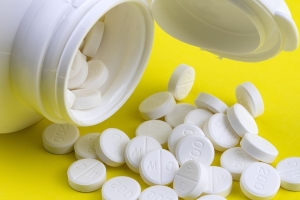E-cigarettes and alcohol consumption
Outubro 02, 2022
Young people are replacing ordinary cigarettes for electronic cigarettes because they believe they are less harmful.
Does Alcohol Consumption Decrease Brain Size?
Junho 30, 2023Study found a correlation between decreased brain volume and alcohol consumption. Read our text to better understand what this means!
What are the main treatments for alcoholism?
Junho 10, 2024What are the main treatments for alcoholism?
There are several treatment options for recovering from alcoholism, but it is necessary to obtain medical advice to identify which is most suitable for the patient.
Alcohol dependence is a complex condition that affects millions of people around the world, harming the physical and mental health of the person with this condition, as well as their interpersonal relationships. However, despite the harmful effects of alcoholism, recovery is possible when the process is carried out through appropriate treatment.
But what types of treatment are available for people diagnosed with alcohol dependence?
Although some believe that treatment is only possible through Alcoholics Anonymous or by controlling alcohol consumption at home, there are other options that are offered in different settings and that can be highly effective.
Main treatment options
Psychotherapeutic treatment
Psychotherapy is important in the treatment of alcoholism because it addresses underlying emotional issues, allowing us to understand what leads the addict to abuse alcoholic beverages and learn how to deal with problems without resorting to these substances. Furthermore, it is a fundamental aid in preventing relapses and creating a sober and healthy life plan. Counting on the aid of a therapist can help develop strategies for coping with the disease.
Among psychotherapeutic treatments, Cognitive Behavioral Therapy (CBT) is usually highly recommended for disorders related to alcohol abuse, as it emphasizes the relationship between thoughts, behaviors and emotions. Through CBT, it is possible to deconstruct preconceived thoughts, such as “I'm just going to drink a little, then I'll stop” or “if I don't drink, I won't be able to relax”, among others.
Pharmacological treatment
In addition to psychotherapeutic interventions, there are medications that can assist in treatment, reducing the desire to drink and anxiety, and relieving withdrawal symptoms when the person stops or reduces alcohol intake.
Three drugs, approved by the Food and Drug Administration (FDA), are used as the basis of treatments: disulfiram, naltrexone and acamprosate.
- Disulfiram is an enzyme inhibitor that causes adverse effects such as nausea, vomiting and even seizures if used in conjunction with alcohol consumption. Thus, it causes the addict to create an aversion to alcoholic beverages due to these effects.
- Naltrexone acts as an antagonist at opioid receptors, reducing the pleasurable effects of alcohol, cravings and feelings of euphoria caused by the substance.
- Acamprosate acts by reducing glutamate-induced calcium uptake, suppressing conditioned responses to alcohol and alleviating withdrawal symptoms.
It is important to emphasize that these medications should always be used under medical advice.
Mutual aid groups
Mutual aid groups, such as Alcoholics Anonymous (AA), are popular among those who want recovery and are a good way to get support, especially for people with spiritual inclinations or those who cannot afford medical treatment or are unable to access public treatments.
Family therapy
Alcohol dependence affects not only the alcoholic, but everyone around them, which is why the family can also – and should – resort to therapeutic support in order to better understand the disease, its symptoms and consequences, as well as receive guidance on the best way of dealing with the addict and his/her dependency.
Often, the family “gets sick” with the person with alcohol dependence, which is why family support is essential so that everyone can get support to better understand the disease and deal with the condition throughout the recovery process.
It is worth remembering that the family plays a very important role in treatment and recovery, as it is they who will help the alcoholic to adhere to and remain in treatment, as well as to overcome difficulties and establish a new lifestyle.
Physical activity
According to research (1), practicing physical activity can reduce the risk of mortality and reduce imbalances caused by alcohol, such as changes in sleep, muscle weakness, irritability and low self-esteem. Furthermore, practicing sports provides more interaction and contact with other people, which can help prevent relapses.
How to identify the best treatment option?
Just as there are a diversity of treatment options, there are also different profiles of people with alcohol dependence, which is why seeking help from medical professionals is the best way to identify the disease and be redirected to the most appropriate treatment. These professionals are the ones who will be able to carry out a detailed and multidisciplinary assessment to understand the alcoholic's profile, consumption patterns, whether the dependence is due to emotional, physical or interpersonal problems, and other issues.
This means that when it comes to treatment, there is no single option that fits everyone, and what works for one patient may not work for another.
References:
Referências:
1 Hallgren, M., Vancampfort, D., Giesen, E. S., Lundin, A., & Stubbs, B. (2017). Exercise as treatment for alcohol use disorders: systematic review and meta-analysis. British journal of sports medicine, 51(14), 1058–1064. https://doi.org/10.1136/bjsports-2016-096814
Rangé BP, Marlatt GA. Terapia cognitivo-comportamental de transtornos de abuso de álcool e drogas. Rev Bras Psiquiatr. 2008;30(SUPPL. 2):s88-s95. doi:10.1590/S1516-44462008000600006
National Institute on Alcohol Abuse and Alcoholism (NIAAA). What to Know about Alcohol Treatment. https://alcoholtreatment.niaaa.nih.gov/what-to-know
What happens if you drink after exercising?
Mai 02, 2023Consuming alcoholic beverages right after exercising can directly harm all muscle recovery.
New data from the Brazilian Ministry of Health show abusive consumption and drinking and driving in Brazil in 2023
Janeiro 12, 2024The Brazilian Ministry of Health published, on September 18, 2023, a new Vigitel* 2023 report, presenting estimates on the frequency and sociodemographic distribution of various risk factors for chronic diseases.
Can the gut microbiome regulate youth alcohol abuse?
Mai 22, 2023A study points to possible associations between the microbiome-gut-brain axis and alcohol compulsion by young heavy drinkers.
Alcohol consumption associated with the use of medication for erectile dysfunction by healthy young men
Fevereiro 03, 2023Studies warn of the harmful effects of recreational use of drugs for erectile dysfunction associated with alcohol consumption.
Are alcoholism medications safe for people with cirrhosis?
Junho 10, 2024Are alcoholism medications safe for people with cirrhosis?
A recent study analyzed the use of medications for alcohol use disorder in patients with cirrhosis, as the safety and effectiveness of these medications in this population is scarce.
A recent study analyzed the use of medications to promote alcohol abstinence in patients with alcohol dependence and cirrhosis [1]. Through research encompassing several studies, it was possible to assess whether the medications reduced consumption or promoted abstinence and whether there was safety in terms of side effects for people with liver problems.
The liver, the main organ responsible for alcohol metabolism, suffers damage due to excessive consumption, characterizing alcoholic liver disease. This can range from asymptomatic changes, such as fatty liver (hepatic steatosis), to alcoholic hepatitis and alcoholic cirrhosis. Early diagnosis and abstinence are fundamental in the treatment strategy for alcoholic liver disease, especially in the early stages, where there is still no irreversible damage and liver decompensation [2].
The presence of alcoholic cirrhosis and its complications can alter the action of medications, impacting the safety of use and increasing side effects. Therefore, the characteristics of the medication and the way it is administered must always be considered in cirrhotic patients.
Since clinical treatment options are limited to improve liver function in patients with cirrhosis, alcohol abstinence is the most important and proven therapeutic intervention [3]. However, many patients have difficulty achieving abstinence. Medications approved for alcohol use disorder include: naltrexone, which helps reduce excessive alcohol consumption; acamprosate, which facilitates the maintenance of abstinence; and disulfiram, which blocks the body's metabolism of alcohol, causing unpleasant symptoms such as nausea and redness of the skin. Other medications, such as baclofen, gabapentin, sertraline and topiramate, are also studied [4]. Among them, only baclofen has been shown to be safe and effective in maintaining abstinence in individuals with liver disease [5].
Seeking to analyze the side effects and effectiveness of medications in patients with cirrhosis or liver disease, even with limitations due to the low level of studies found, the study indicated that the use of medications can increase the probability of alcohol abstinence by 32% compared to placebo or standard treatment. Furthermore, the safety profile of these medications was considered adequate in most studies, suggesting that they may be an alternative for the treatment of patients with alcoholic cirrhosis. However, it is important to highlight the need for more research, especially in patients with advanced liver disease, to confirm these findings and evaluate the safety of these medications in this vulnerable population [1].
Therefore, if you or someone you know is dealing with alcohol use disorder and cirrhosis, it is essential to follow medical recommendations. Appropriate treatment can significantly increase quality of life and survival.
References:
- Gratacós-Ginès, J., Bruguera, P., Pérez-Guasch, M., López-Lazcano, A., Borràs, R., Hernández-Évole, H., Pons-Cabrera, M. T., Lligoña, A., Bataller, R., Ginès, P., López-Pelayo, H., & Pose, E. (2024). Medications for alcohol use disorder promote abstinence in alcohol-associated cirrhosis: Results from a systematic review and meta-analysis. Hepatology (Baltimore, Md.), 79(2), 368–379. https://doi.org/10.1097/HEP.0000000000000570
- Addolorato G., Mirijello A., Barrio P., Gual A. Treatment of alcohol use disorders in patients with alcoholic liver disease. J. Hepatol. 2016;65:618–630. doi: 10.1016/j.jhep.2016.04.029.
- O'Shea, R. S., Dasarathy, S., McCullough, A. J., Practice Guideline Committee of the American Association for the Study of Liver Diseases, & Practice Parameters Committee of the American College of Gastroenterology (2010). Alcoholic liver disease. Hepatology (Baltimore, Md.), 51(1), 307–328. https://doi.org/10.1002/hep.23258
- Jonas, D. E., Amick, H. R., Feltner, C., Bobashev, G., Thomas, K., Wines, R., Kim, M. M., Shanahan, E., Gass, C. E., Rowe, C. J., & Garbutt, J. C. (2014). Pharmacotherapy for adults with alcohol use disorders in outpatient settings: a systematic review and meta-analysis. JAMA, 311(18), 1889–1900. https://doi.org/10.1001/jama.2014.3628
- Addolorato, G., Leggio, L., Ferrulli, A., Cardone, S., Vonghia, L., Mirijello, A., Abenavoli, L., D'Angelo, C., Caputo, F., Zambon, A., Haber, P. S., & Gasbarrini, G. (2007). Effectiveness and safety of baclofen for maintenance of alcohol abstinence in alcohol-dependent patients with liver cirrhosis: randomised, double-blind controlled study. Lancet (London, England), 370(9603), 1915–1922. https://doi.org/10.1016/S0140-6736(07)61814-5
Alcoholism may be linked to genetic causes
Fevereiro 03, 2023Genetic factors can also influence drinking behavior, as well as alcohol abuse and dependence.










